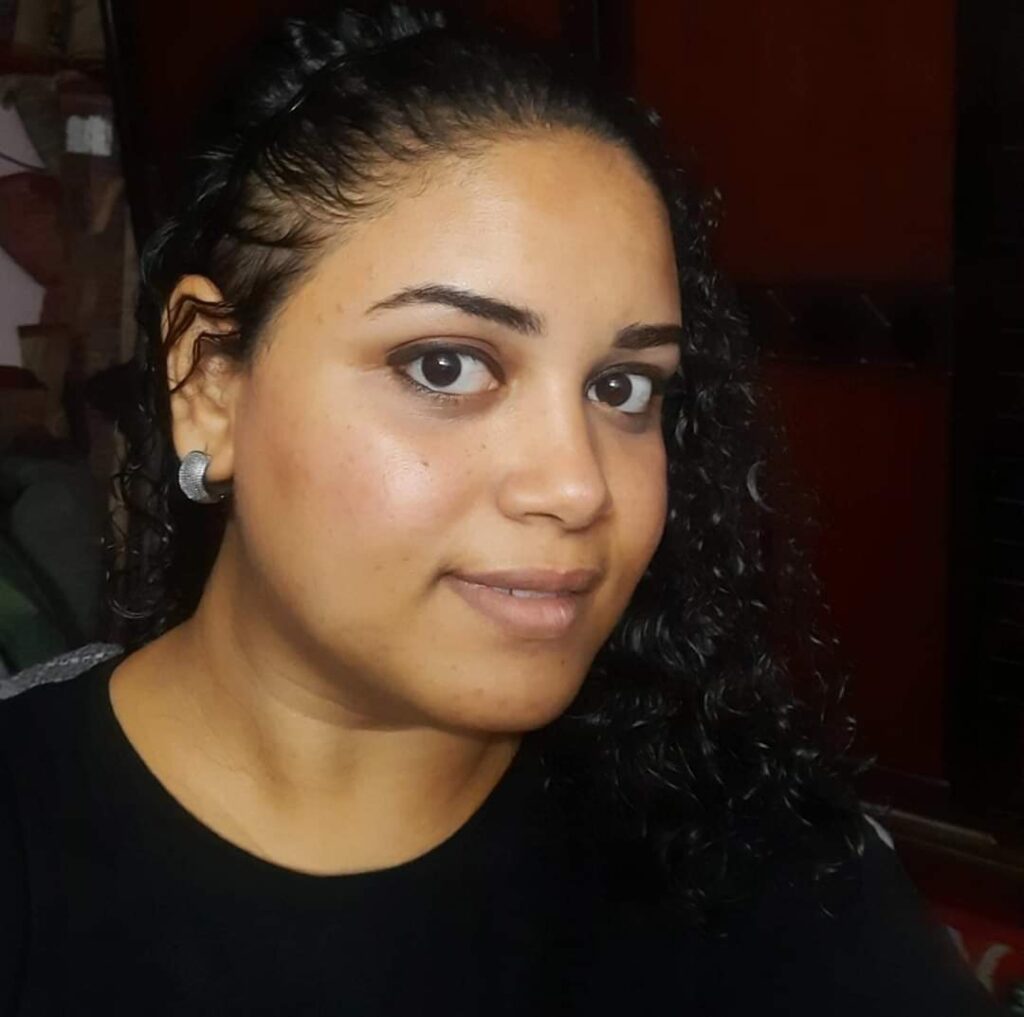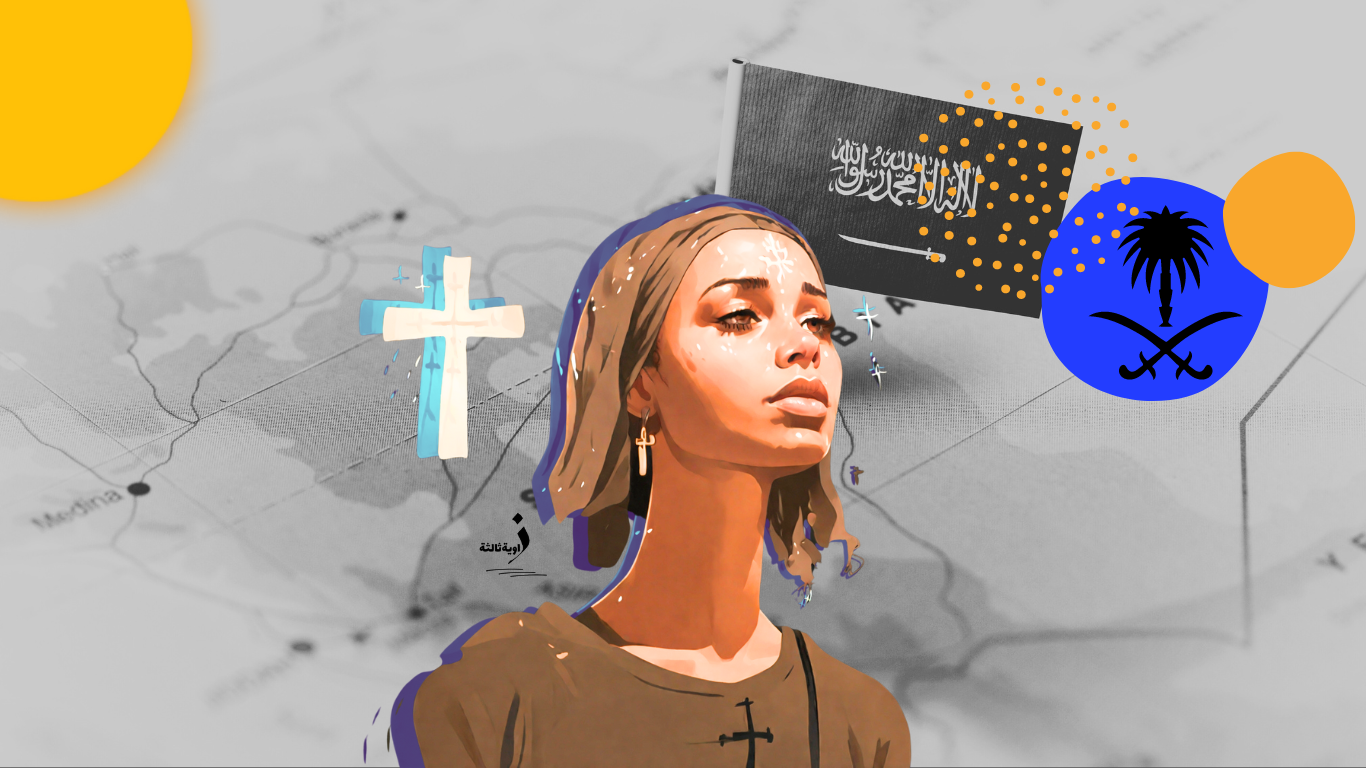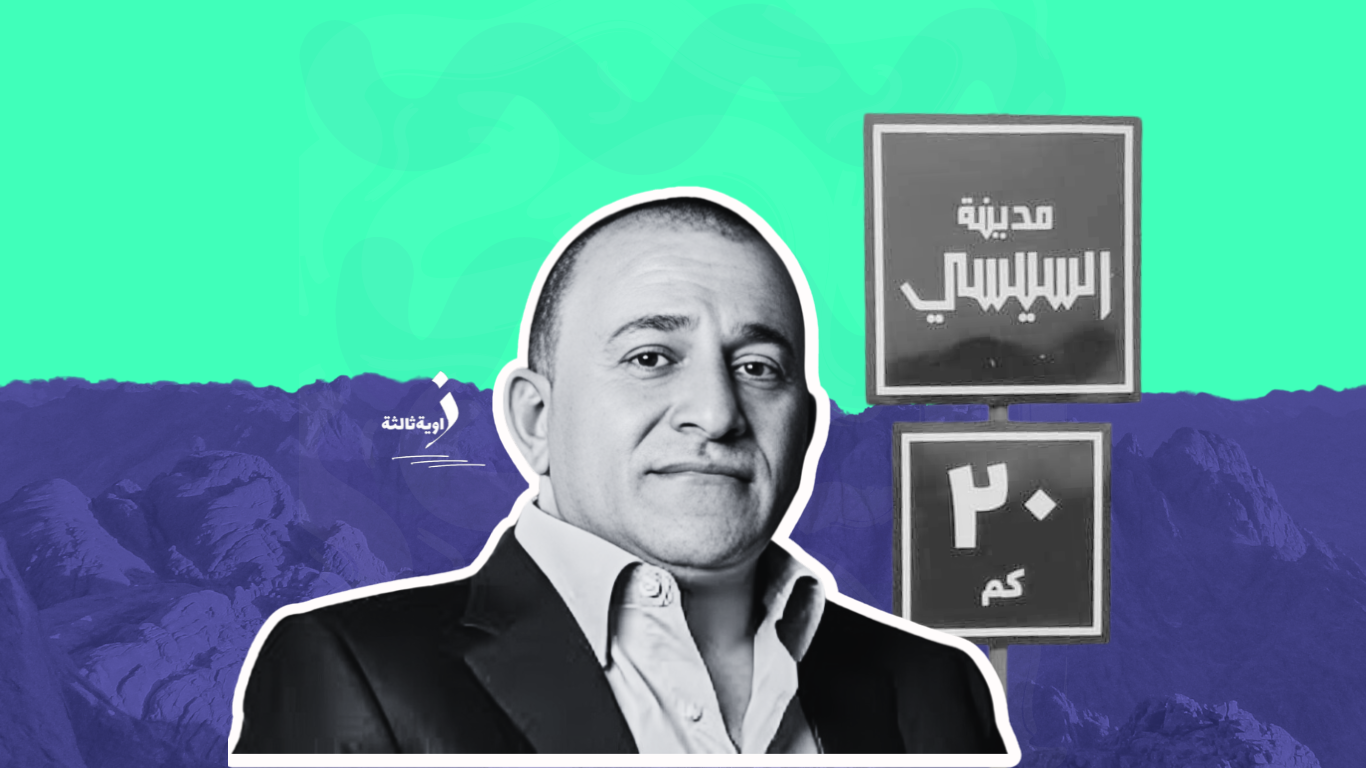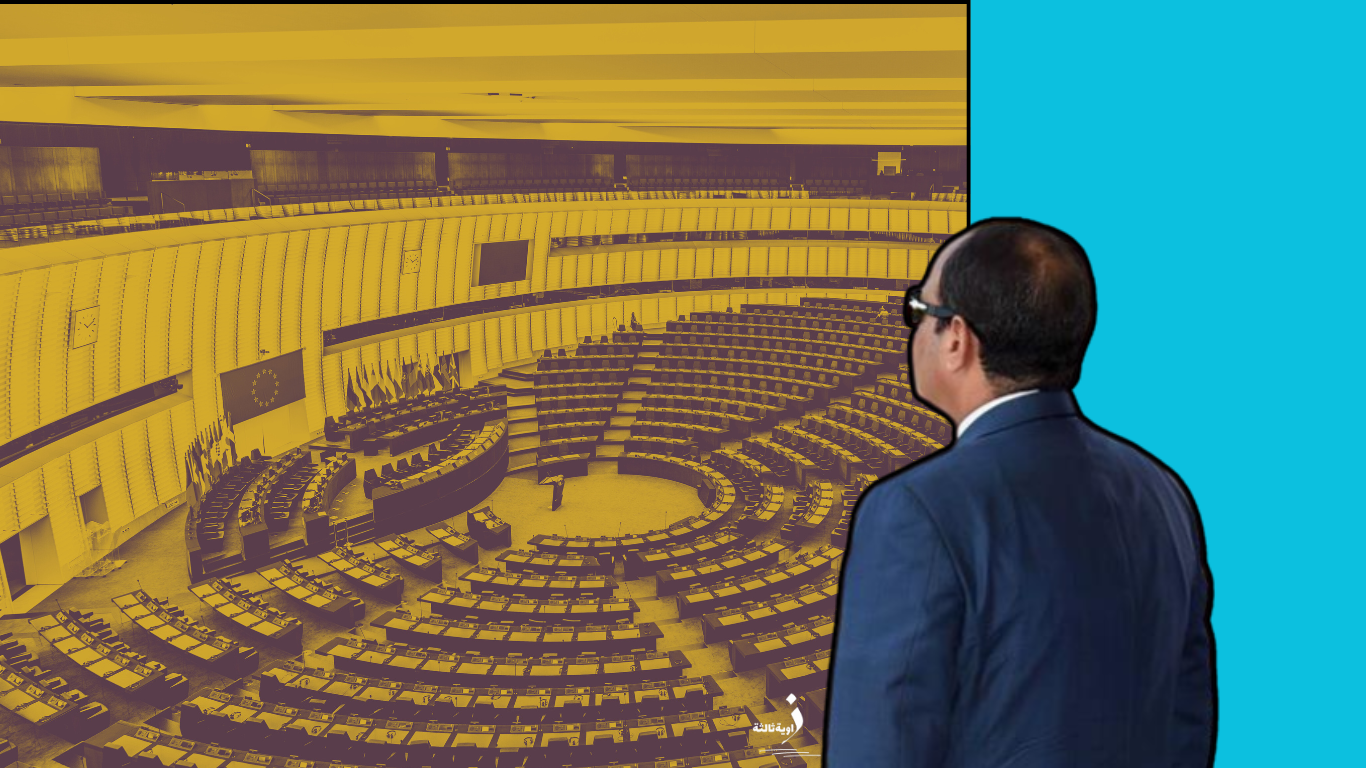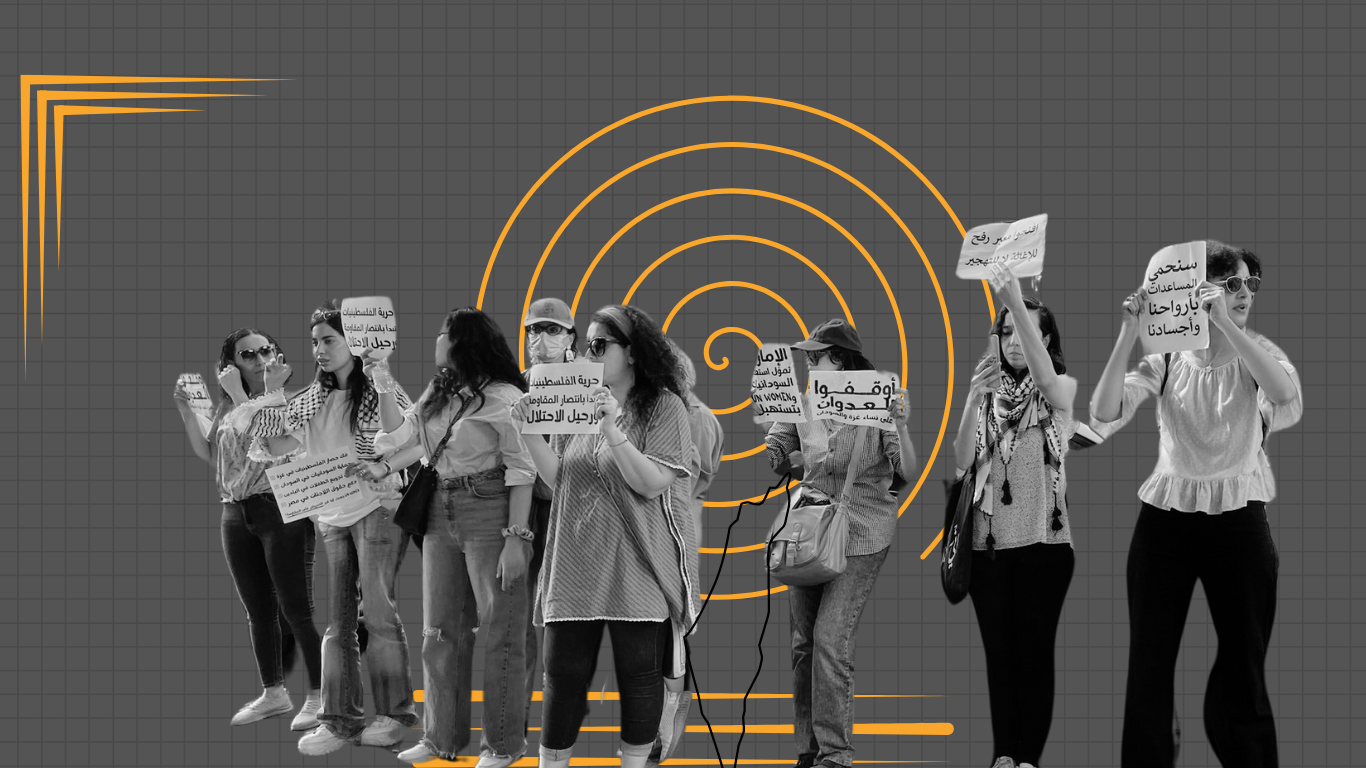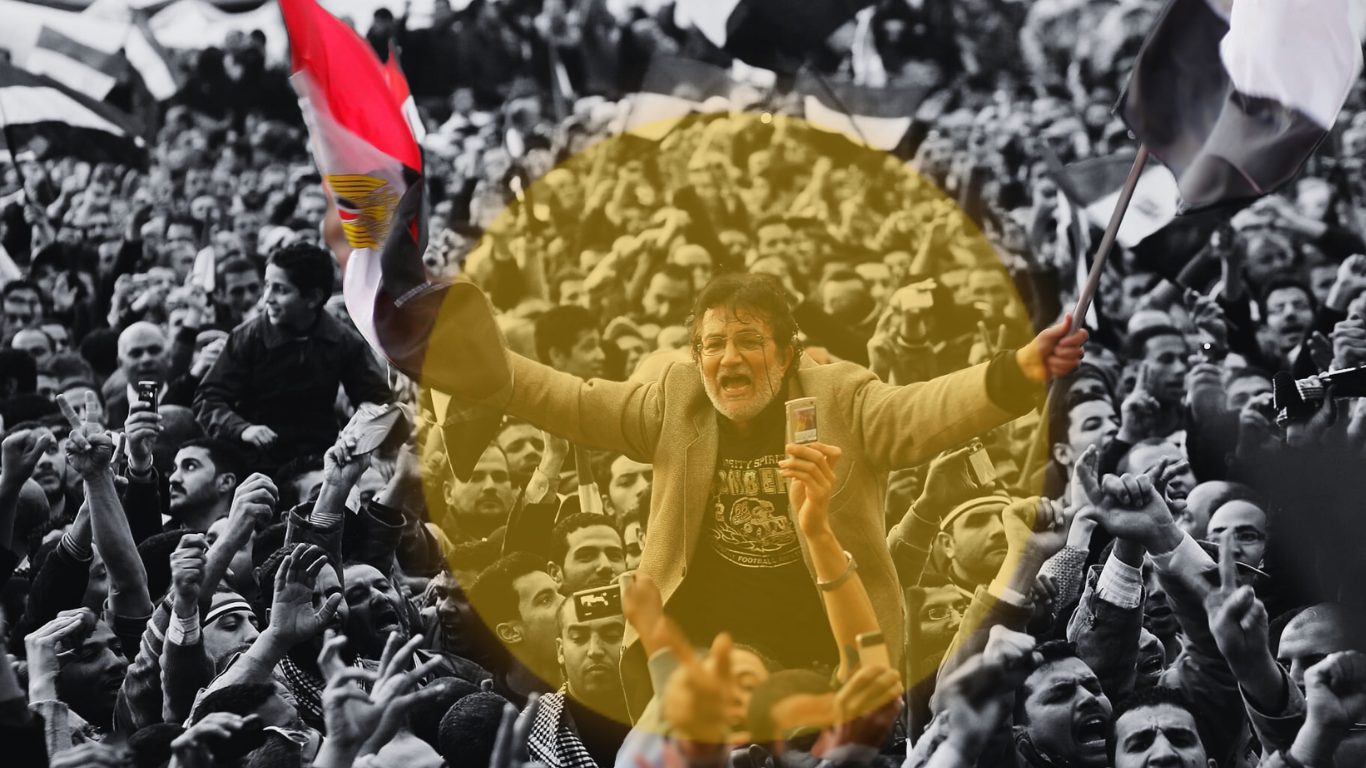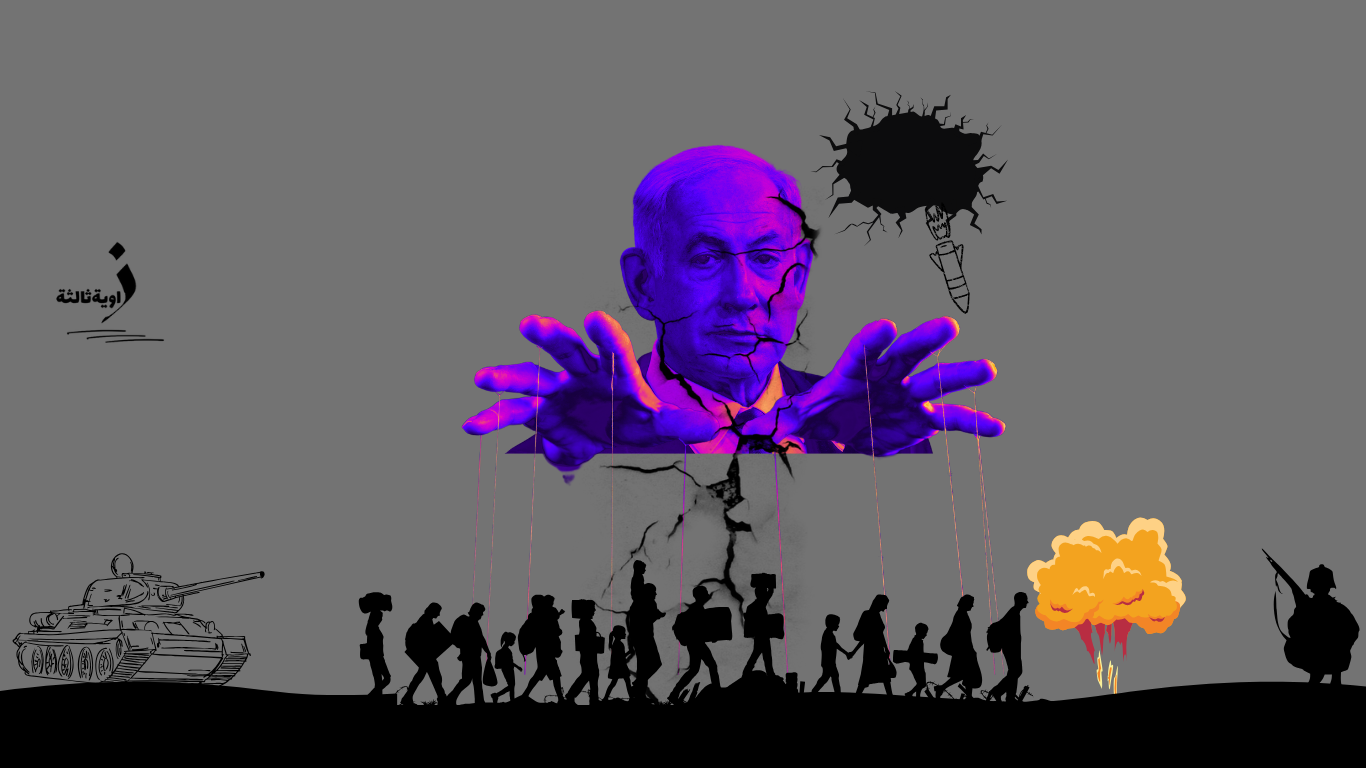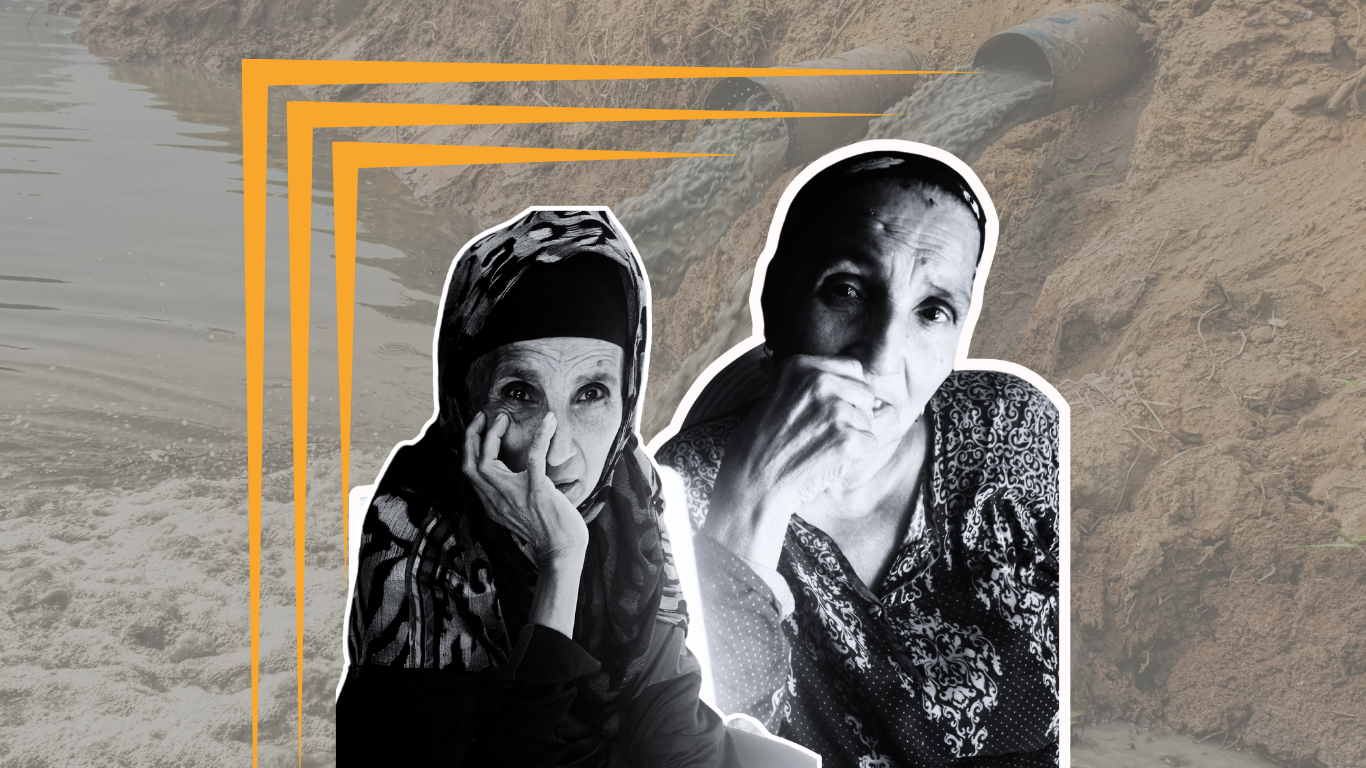During the first and second days of elections, the Egyptian media, with few exceptions, echoed that the voting reflected a democratic process, highlighting an unprecedented and historic turnout. Television channels broadcasted footage showing voters lining up in front of polling stations. However, sources from civil opposition criticized the scene, deeming it “artificial.”
Activists on social media shared a video depicting Interior Ministry personnel forcing citizens to exit their cars and proceed to the mandatory voting booth.
In “Zawia3,” we previously reported on various aspects of mobilization carried out by the state through its institutions, titled “Cash-Driven Votes: Unmasking Election Tactics in Egypt
” We observed the efforts of some institutions and agencies to mobilize employees, workers, and electronic mobilization as well, directing them to the polling stations.
Simultaneously, opposition voices expressed opinions on participation estimates ranging from weak to below average. Opponents stated that a sense of frustration has gripped the Egyptian streets due to economic conditions, exacerbated by the ongoing conflict in which the occupying forces are engaged in the Gaza Strip.
The presidential elections feature four apparent candidates: Abdel Fattah el-Sisi, Dr. Abdel Sattar Yemamah, head of the Wafd Party, Farid Zahran, head of the Egyptian Democratic Socialist Party, and Hazem Omar, head of the People’s Republican Party.
Zahran and Punitive Voting

The presidential candidate Farid Zahran, the head of the Egyptian Democratic Party, monitored the electoral process through an operations room established by his campaign. They observed violations by employees in the executive authority and supporters of what they referred to as the “state’s candidate,” Abdel Fattah el-Sisi. The campaign submitted a list of these violations to the National Elections Authority, according to lawyer Ahmed Fawzi, a campaign member.
Fawzi emphasized that a sector of democratic forces surpassed the stance of boycotting the elections and called for voting for their candidate. Thus, Zahran became a significant opposition candidate against a candidate with influence and authority.
He noted that the campaign performed well since its program was presented, and it had a reasonable presence in the provinces compared to its resources. Fawzi pointed out that the media coverage was balanced and not overtly supportive of the incumbent candidate.
He also mentioned that security forces did not interfere in the electoral process except for organizing it.
According to the observations of the campaign in several provinces, voter turnout was estimated to be at least below average. This was attributed to the crises preceding the elections, in addition to the situation in Gaza, which cast its shadow over the overall situation in Egypt.
The civil democratic movement was divided over supporting and voting for Farid Zahran. Two parties, the Egyptian Democratic and Justice parties, decided to freeze their activities within the movement due to a statement signed by the majority of the movement’s parties and public figures declaring their non-participation in the elections.
Nine out of twelve parties in the civil movement signed a statement announcing their non-participation in the presidential elections and not presenting a candidate representing them. This statement was published by the politician Hamdeen Sabahi on his Facebook page on November 12 of last year.
A few days before the start of the voting process, public figures from the opposition democratic trend began declaring their support for the candidate Farid Zahran in the ongoing presidential elections, as part of a punitive voting policy against el-Sisi. One of the prominent figures supporting Zahran is the activist Laila Soueif, a mathematics professor at the Faculty of Science and the mother of the political detainee Alaa Abdelfattah. This is in contrast to her stance on the presidential elections in the two previous instances.
Soueif believed that boycotting without protest movements would send a message of submission to the fait accompli, considering that hundreds, if not thousands, would be pressured to go to the polling stations and vote either through coercion or by exploiting their poverty. These individuals could be directed to vote against el-Sisi, especially since their attendance at the polling stations was forced and threatened.
Artificial Congestion

“There is a line of citizens standing in front of the polling station with Egyptian flags, creating a deceptive sense of congestion. In reality, they are not voters but citizens placed there to fabricate congestion, giving a false impression of enthusiasm for the elections. The truth is the opposite.”
With these words, the politician Khaled Dawoud, the spokesperson for the Civil Movement, described what he called “my observations in front of the polling stations” during his presence at one of the polling stations to vote for the candidate Farid Zahran.
He added, “During my visit, I did not find any congestion inside, and the stations were empty, which confirmed to me that this congestion is artificial. I waited, cast my vote, and left, and no one from the line moved.”
He explained that this congestion aims to convey an image of citizen satisfaction and enthusiasm for the elections. It is a strategy employed by the relevant authorities and parties supporting the regime, specifically the “Future of the Nation” party. He concluded by stating that there is a state of dissatisfaction among citizens with the elections because they feel it is predetermined.
Sources from state employees told “Zawia3” that there are threats of penalties for workers unless they go to the polling centers. These penalties include financial deductions, separate from the punishment for failing to vote, as stipulated in the Law Directing Political Rights, Law No. 45 of 2014, amended by Law No. 140 of 2020. The amended law imposes a financial penalty on those who do not participate in the electoral process.
Frustration Prevails
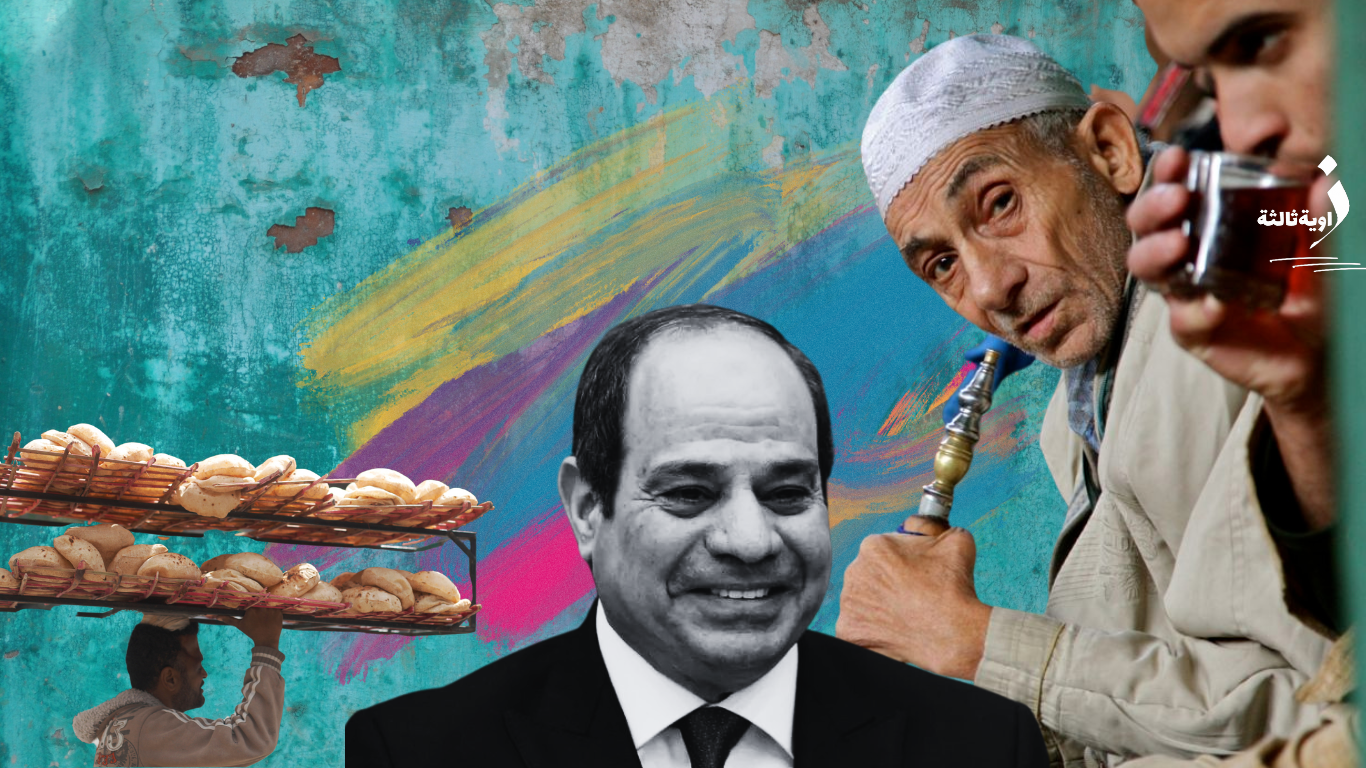
“In general, there is no candidate other than ‘Sisi’ in these elections. These elections are predetermined, and mobilization is done through traditional means by the relevant authorities, whether administratively by employees or by recruited youth groups through parties loyal to the regime. However, citizens are generally absent,” says Dr. Zohdi El-Shami, an economics and political science professor and deputy head of the People’s Socialist Alliance Party, describing the election scene in Egypt.
He added that the regime fears empty polling stations to avoid questioning its legitimacy, especially internationally. A picture must be painted showing the existence of elections and voters. Still, this will not change the fact that there is no genuine electoral competition, and everything is predetermined without actual elections.
The professor of economics and political science pointed out the prevailing sense of frustration among the majority of the Egyptian people. There is a lack of belief in the existence of genuine or pluralistic competition, the neutrality of the state, or the reality of the scene. This makes the citizens reluctant to participate.
“We are facing artificial elections in favor of the current president, who secured a third term after amending the constitution. I don’t rule out the possibility of amending the constitution again before the end of the third term, allowing him to run again,” he added.
The Socialist Popular Alliance Party had launched a campaign called “Enough” to demand that Sisi refrain from running in the current presidential elections. The party stated that the current regime caused a suffocating political and economic crisis.
The party believed that the ongoing elections do not provide an opportunity to choose alternative policies to overcome the prolonged crisis through a peaceful change of power.
In the same context, the politician Akram Ismail, a representative of the Bread and Freedom Party under establishment, saw that the Egyptian street is suffering from a state of extreme frustration and shock due to what is happening in Gaza, in addition to the economic crisis and the way the authorities handled the elections during the mandate phase.
The leader of the Bread and Freedom Party added that there is a prevailing feeling among the majority of citizens that there is no way out of what is happening, causing a lack of interest in the entire political scene in Egypt.
He further stated that abstention and silence are dangerous conditions indicating a dormant anger that may explode at any time, confirming that the war on Gaza was very revealing of a state of weakness. It also revealed the true perspective with which the world views Arab countries.
The Bread and Freedom Party had decided not to participate in the presidential elections due to serious violations during the collection of endorsements against the citizens’ right to freely express support for the candidate they wish to endorse, leading to the exclusion of one candidate, former parliamentarian Ahmed Tantawi, according to the party’s statement.
Earlier, the party issued a statement titled “Presidential Elections: An Opportunity for Recovery and Exiting the Crisis or a New Station for Deterioration and Disappointment.” The statement affirmed that the real obstacle to any serious elections that could be an opportunity for societal recovery and the experience of alternative policies that can restore hope to the masses of citizens is President Sisi’s nomination for a new electoral term. This necessarily loses the neutrality of state institutions and the integrity and pluralism of the entire process, as confirmed by the observations highlighted during the mandate phase.
The first day of the voting process concluded with the Higher Media Council referring to the responsible authorities of the “Saheeh Masr” platform, which is responsible for fact-checking news, to the public prosecutor for investigation into complaints accusing them of spreading false news about the presidential elections.
The platform posted on its social media pages, Facebook and X, a “Prohibitions” list issued by the United Company managing most media and journalistic institutions in Egypt to avoid during the coverage of the elections. It sent it to the administrations of television channels and electronic platforms under its umbrella.
Among the prominent prohibitions, according to the “Saheeh Masr” report, were the prohibition of filming any violations during the voting process, the prohibition of broadcasting any materials showing the mobilization or congestion of citizens through buses or otherwise, and the prohibition of showing the citizens’ reluctance to participate in voting. This contradicts Article 32 of the Law Directing Political Rights, Law No. 45 of 2014, which emphasizes the necessity of accuracy in media reporting and the prevention of broadcasting any scenes showing violations affecting the elections.


